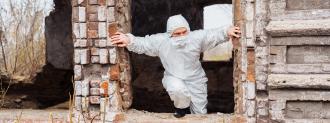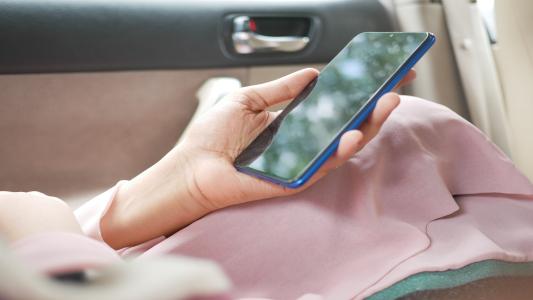The U.S. has brokered a deal between vaccine maker Johnson & Johnson (J&J) and a WHO-backed initiative that will help get COVID-19 vaccines to people in conflict zones.
“We need to ensure that people who cannot be reached by government vaccination campaigns aren’t left out of our efforts,” U.S. Secretary of State Antony Blinken said. “They need to be protected, too.”
Vaccinating the world: Now that we have effective COVID-19 vaccines, the next step is getting the world’s population vaccinated — and that process is very different depending on where you live.
Many governments have made deals to buy shots directly from the vaccine makers, then distribute them for free through existing healthcare infrastructure.
To ensure people in low-income nations aren’t left behind, the U.S. and other nations have agreed to buy and donate shots. J&J has agreed to donate shots itself, too, but only if local governments assume legal liability for them.
If we don’t vaccinate people in conflict zones, the regions could become incubators for COVID-19 variants.
The challenge: Some of those low-income countries are torn apart by internal conflicts and lack an effective government or healthcare system to distribute shots, leaving people in conflict zones unprotected against COVID-19.
“In countries suffering from years of conflict — such as the Democratic Republic of Congo, South Sudan, and Yemen — less than 2% of the population have been vaccinated against COVID-19,” Esperanza Martinez, head of the International Committee of the Red Cross’ COVID-19 crisis management team, said in a statement.
What’s new: On November 10, 2021, the U.S. announced that it had brokered a deal between J&J and COVAX, a WHO-backed initiative to distribute COVID-19 vaccines, therapies, and tests to low- and middle-income nations.
Obtaining vaccines is just one hurdle to protecting people in conflict zones from COVID-19.
Through this deal, J&J has agreed to waive its need for a government to assume legal liability for donated vaccines and let COVAX distribute the shots in conflict zones.
A senior White House official told Axios that the U.S. also agreed to donate 1.5 million J&J vaccines to COVAX for distribution to refugees, asylum seekers, and people in conflict zones as part of the deal, but that hasn’t been confirmed publicly.
Step one: Obtaining vaccines is just one hurdle to protecting people in conflict zones from COVID-19 — actually getting the shots into arms is another.
Attacks on medical facilities and workers are common in conflict zones (despite being prohibited by the Geneva convention), and even if those institutions remain intact, citizens may not be willing to risk their lives traveling to them.
“Especially in places that have protracted conflict…innately there’s a mistrust or a distrust of information like this.”
Dee Goluba
That means COVAX will largely be working outside any normal healthcare infrastructure, in dangerous settings with people who may or may not trust them or the vaccines they’re offering.
“Especially in places that have protracted conflict, where there’s also going to be weak governance, innately there’s a mistrust or a distrust of information like this, on COVID-19 and vaccines, that comes out,” Dee Goluba, director of field security for the humanitarian group Mercy Corps, told Devex in January.
COVAX will also need to maintain the vaccines’ cold-chain in places where the electric grid may be unstable. Thankfully, that’ll be easier with J&J’s vaccine than it would be with Pfizer’s or Moderna’s, which both require very low temperatures. The fact that it’s a single-dose shot will also make it easier to distribute than the mRNA vaccines.
The big picture: Distributing COVID-19 vaccines to people in conflict zones is ethically the right thing to do — but that’s not the only reason we need to do it.
If we don’t vaccinate people in conflict zones, the regions could become incubators for COVID-19 variants, steadily churning out new strains that the rest of the world then has to contend with.
“We’re eager for people in these difficult circumstances to get protection against COVID-19 as soon as possible,” Blinken said. “We know the urgency of this fight.”
We’d love to hear from you! If you have a comment about this article or if you have a tip for a future Freethink story, please email us at [email protected].






